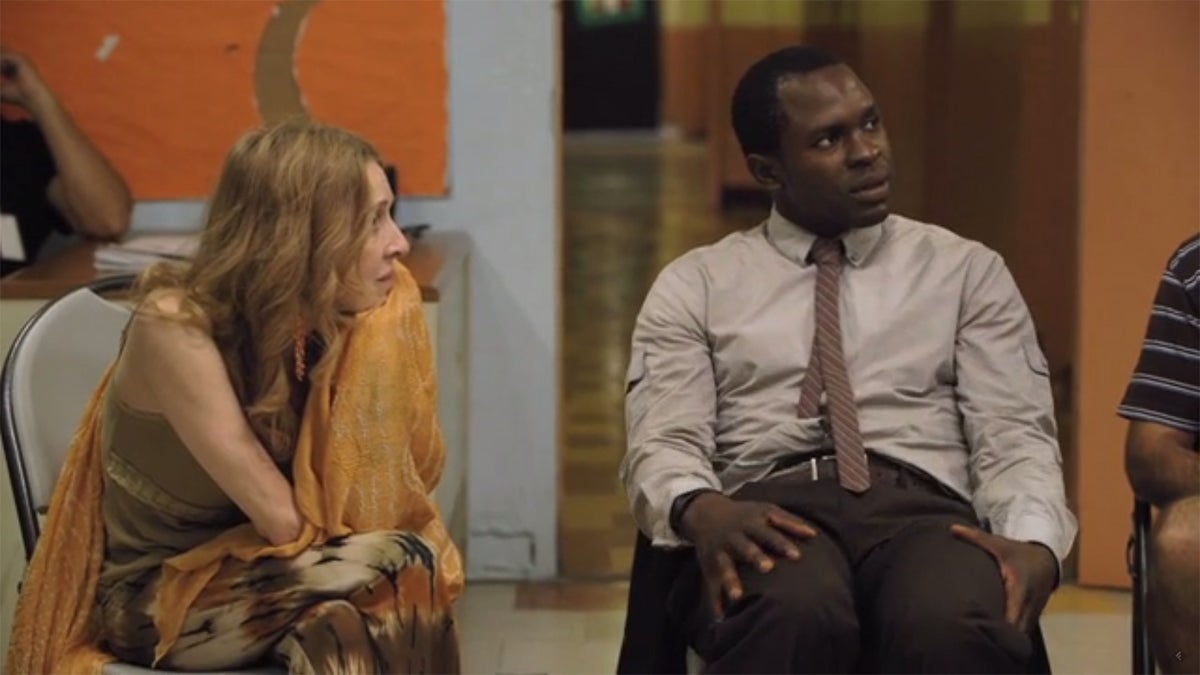Putting research into practice, group aims to improve mental health care for African-Americans

Still image from the motion picture 'Home' shows Gbenga Akinnagbe playing a man with mental illness who wants to move out of a group home and into a home of his own. A Philly coalition advocating culturally competent care is screening the film.
In Philadelphia, a new group is working to provide better and more tailored mental health care for African-Americans.
The Coalition of Culturally Competent Providers is hosting pop-up information tables from 10 a.m. to 2 p.m. on Thursday to spread the word about a decade or more of research focused on African-American psychology and wellness.
That information has been slow to trickle-down to counselors and doctors in the community, said Coalition president Kenneth Glass.
“Our goal is to take the research and put it into practice,” said Glass, a psychologist in Philadelphia.
The coalition, which formed about a year ago, includes several Philadelphia behavioral-health groups, including WES Health Systems, which is largely managed by African-Americans.
LaJewel Harrison, chief of staff at WES, said African-Americans should have more options to get treatment from “people that look like you.”
“[Providers] that can relate if you come in the building and say, ‘Hey, I’m very frustrated because I’m continually stopped by the police,’” said Harrison.
Without proper training, counselors sometimes discount those experiences, she said.
Harrison, who is also a volunteer with the National Coalition of 100 Black Women, wants people to stop by on Thursday.
“Take a couple of minutes to complete the screening tool and to gain some awareness on where their life is and whether or not they need to come in for services,” she said.
Compared with other groups, African-Americans tend to seek mental health treatment when their illness has progressed further, said Glass.
“They come less and come later. Because they feel they are overpathologized,” he said.
“They say, ‘As soon as I walked in the door, they wanted to give me medication before they knew what was going on with me,’” Glass said.
In focus groups, African-American patients have reported that when they do seek help, the provider often doesn’t understand their living experience, he said.
In addition to public awareness, the coalition is spurring conversations about “culturally competent” care among counselors and therapists. As part of that effort, Jono Oliver’s film “Home” will be screened for providers.
On May 14, education tables will be set up in public spaces near the following locations:
Community Council Health Systems, 2700 N. 17th St. (19132)
The Consortium, Inc., 5501 Chestnut St. (19139)
Dunbar Community Mental Health, 5238 Chester Ave. (19143)
Northwest Human Services, 265 E. Lehigh Ave. (19125)
WES Health System, Broad Street and Windrim Avenue (19141)
WHYY is your source for fact-based, in-depth journalism and information. As a nonprofit organization, we rely on financial support from readers like you. Please give today.

